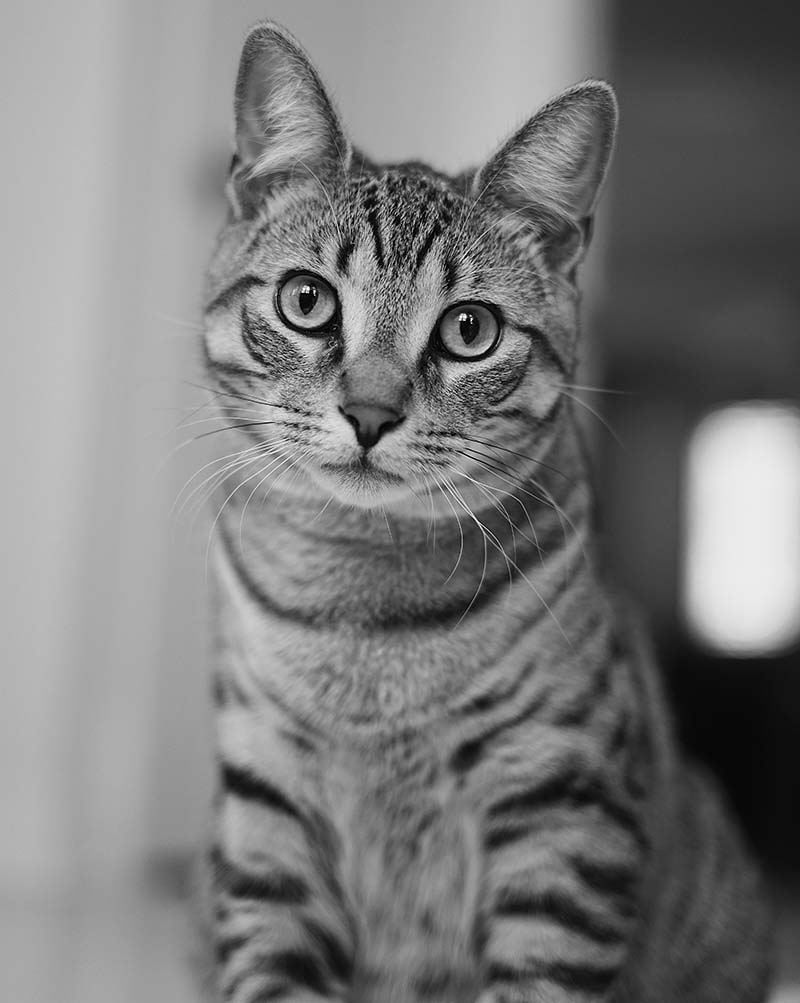Cat Health
Vaccination
Vaccinations are an important part of caring for your cat. Vaccines provide protection from some potentially fatal diseases such as infectious enteritis (feline panleukopaenia) and cat flu (feline calicivirus and feline herpesvirus). Cats who are vaccinated will either show no signs of illness or are less likely to become seriously ill from these diseases. Some viral diseases can cause secondary chronic immune syndromes later in life, such as immune mediated gingivitis and stomatitis, a painful inflammatory condition of the mouth or eye ulceration and atrophic rhinitis and chronic sinusitis.

Core and non-core vaccinations:
Core vaccines are those that all unvaccinated cats and cats with an unknown vaccination history should receive to protect them against key diseases including feline panleukopaenia virus which is a feline specific parvovirus), feline calicivirus and feline herpesvirus. This vaccination combination is commonly known as the F3 vaccination.
Non-core vaccines are those that should only be given to cats in specific risk categories based on an individual risk/benefit assessment. This assessment will take into account the geographical location, lifestyle, and risk of exposure to the infection of the individual cat. Examples of non-core vaccines include those for feline leukaemia virus (FeLV), feline immunodeficiency virus (FIV), and Chlamydia felis.
Please speak to us if need to know the most appropriate vaccination for your individual cat.
Kitten vaccinations:
The first core vaccination is administered to kittens at 6-8 weeks of age, then every 3–4 weeks until 16–20 weeks of age. The World Small Animal Veterinary Association (WSAVA) now recommends that an additional booster vaccine is then given at 6 months of age to kittens deemed at-risk, to ensure that a protective immune response develops in cases where there was an inadequate response to any of the first three vaccines.
Please speak to us if you are unsure of which vaccinations are right for your kitten, to work out whether your kitten could be deemed at-risk, or if you are concerned about your kitten’s vaccination being overdue.
Adult cat vaccinations:
An adult cat who has received a primary vaccination course will require the core vaccination every 1-3 years, depending on the duration of immunity provided by the vaccine the previous veterinarian used and the cat’s individual circumstances. Check with us if you are unsure of what is appropriate for your cat.
If you have a cat who is an adult but has not been vaccinated or whose vaccination history or status is unknown, they will need two doses of the core vaccination, 3–4 weeks apart no matter what their age. After this the cat should receive a vaccination every 1–3 years as usual. If you’re introducing another cat with an unknown vaccination history to your household, if possible ensure vaccination with core vaccines at least a week before bringing the cat home to meet your other animals.
Vaccinations required for boarding cats:
The frequency of feline booster vaccinations varies from 1-3 years depending on the vaccine, the disease, and the risk of disease exposure to the individual cat. In general, it is recommended by expert panels on feline vaccination that cats who stay at a boarding cattery require an annual vaccination schedule.
Boarding is stressful for a cat and stress has immunosuppressive effects which may result in increased susceptibility to infection and disease, and additionally there can be a higher risk of exposure to infectious disease.
For these reasons, it is still recommended that a cat should have a vaccination within 12 months of entering a boarding facility, and why almost all cat boarding facilities require cats to have received a vaccination booster within 12 months prior to admission to the facility.
We will always do a health check before administering a vaccination to ensure your kitten or cat is healthy enough to be vaccinated. This also provides an excellent opportunity for you to ask us about anything you have been concerned about, and have your cat examined for any underlining illness that they may be hiding from you.
The core vaccines used in cats are very safe with a very low incidence of adverse reactions; the benefits of protection from serious infectious disease significantly outweigh the risks of developing an adverse reaction.
